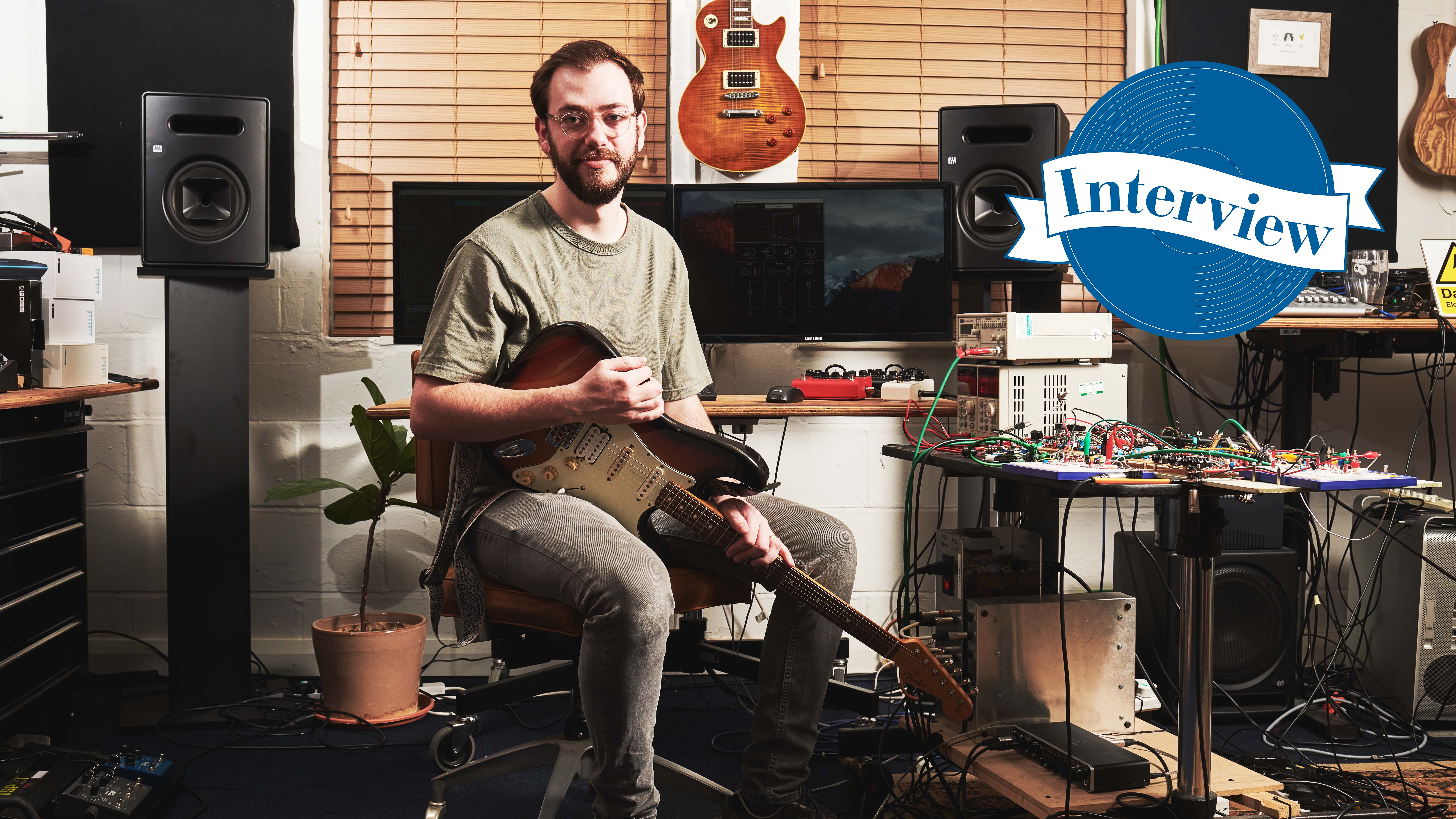
Want all the hottest music and gear news, reviews, deals, features and more, direct to your inbox? Sign up here.
You are now subscribed
Your newsletter sign-up was successful
Alex Gee is one of those unsung heroes outside his industry whose hours of research, trial, error and inspiring innovation help to make us sound better with our guitars. In his decade at Blackstar Amplification's UK HQ in Northampton Alex has earned his stripes through hard work and talent to become a Senior Product Developer at a company where teamwork is part of the DNA. And he's also been behind some truly innovative features for guitar amps.
The ID Core series' stunning Super Wide Stereo sound? That was Alex. And now he's helping the company to forge ahead with Cab Rig; Blackstar's nuanced editable alternative to Impulse Responses. And that also points to a central facet of the company that helps set them apart in the industry for us; analogue and digital technology aren't an either/or situation at Blackstar.
We recently visited Blackstar's base to try some of the new products they've got coming later this year (all we can say at this point about those is be very excited!) and while we there we sat down with Alex to talk about his role and career path, the advice he can offer to others who want to get into the amp industry, and why a polarising modelling vs valve debate is somewhat redundant for him.
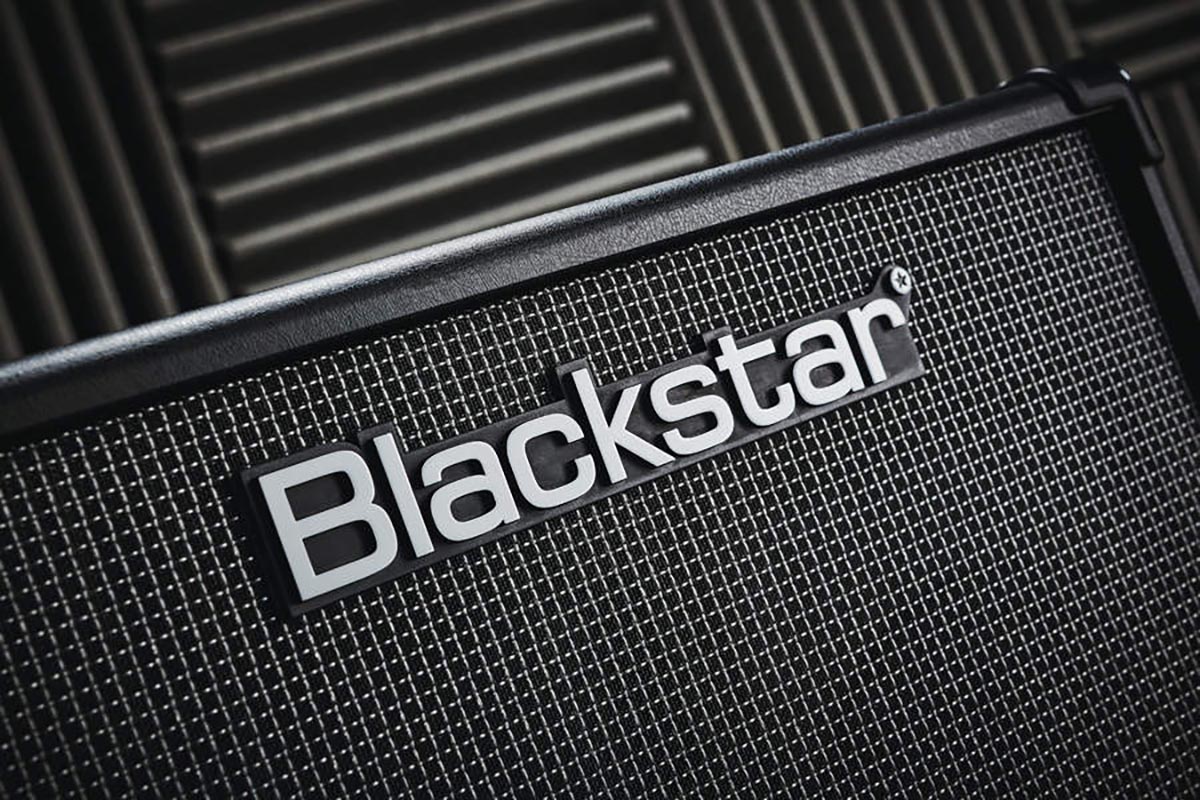
How did you start out at Blackstar?
"I actually applied for the job answering the phones. I didn't do well in that interview, because part of it was writing a letter. And I was just absolutely terrible, really dyslexic and didn't do well in that. But I got to tell Paul [Hayhoe, Blackstar co-founder and Brand Director] here – the guy who interviewed me – about my background from before that; going to college and also selling secondhand music equipment. And there was another role that they needed that they hadn't even advertised for, which was product tester. And this was for their first digital product that they were doing; the ID Series.
"They needed someone to test it all day, basically, and the software. So they knew that I could at least play because that was part of the answering phone interview. And got to know me a bit better, that I was a bit geeky because I was into MIDI and recording. So I ended up getting a job doing the product testing."
After joining did you learn on the job?
Want all the hottest music and gear news, reviews, deals, features and more, direct to your inbox? Sign up here.
"Yes. I'd been to college to do music technology. So all the recording side of it that I've been really passionate about before I joined. And that kind of tied into everything I was doing here [at Blackstar]. It was mainly testing the MIDI and testing the USB audio recording. In doing that, I then got to learn about all the sound engineering stuff that I was seeing happening in different rooms and got involved a little bit more in that. And that's how I moved on to doing some more [amp] voicing work."
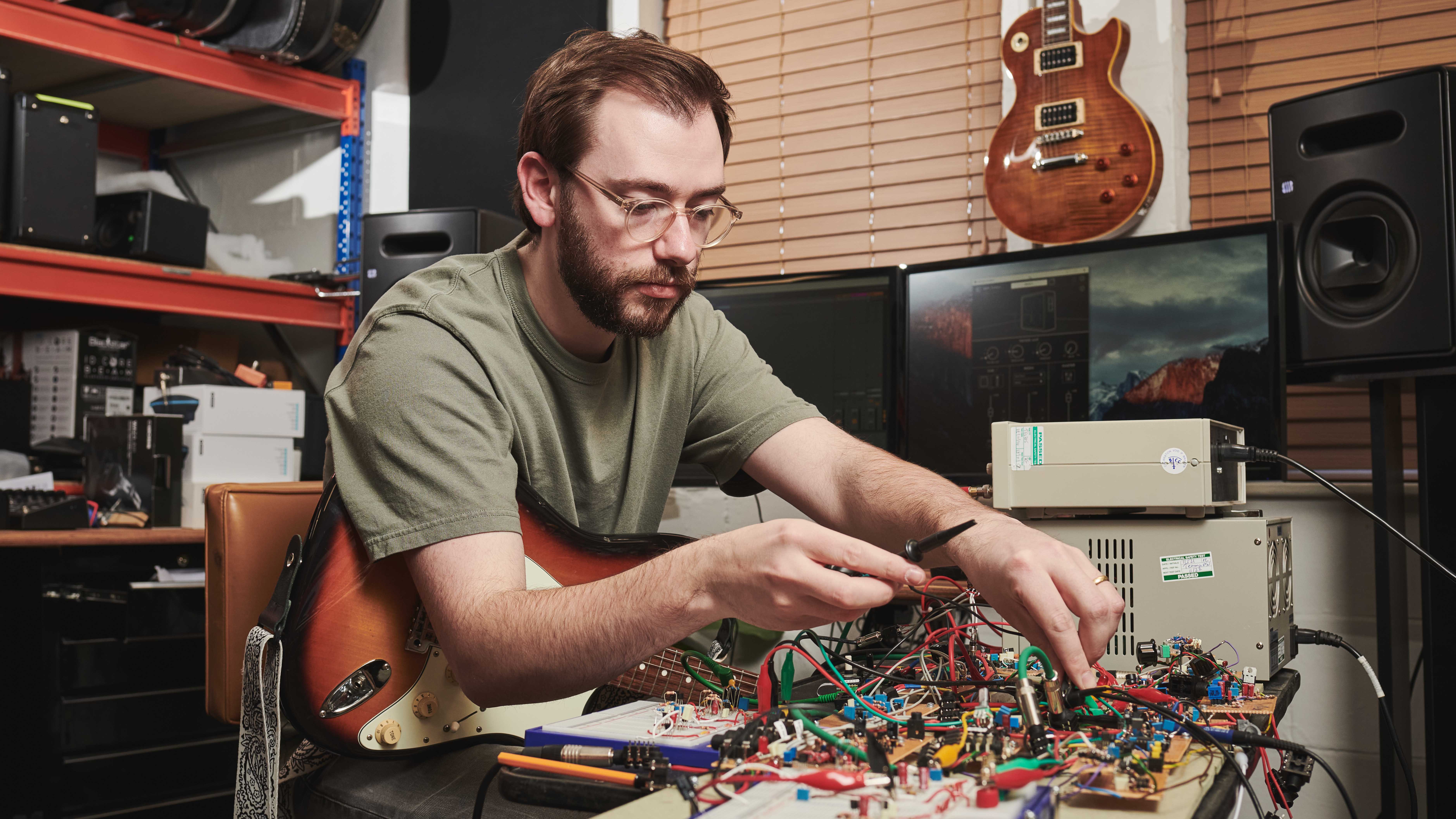
I came in with the attitude of, I know nothing and I'm around really clever people right now
Did you have to go and learn any formal skills outside of Blackstar for that?
"Absolutely not, no."
So the team at Blackstar were teaching you?
"Yes, and I think it worked really well, because I came in with the attitude of, I know nothing and I'm around really clever people right now. So I'm not going to pretend that I know anything, I'm just going to listen and pick up bits along the way. And there was no electronics or anything like that. And I still don't do too much electronic stuff but I understand the bits that are important to the job that we do here. So it's mainly a sound engineering job that I do now. And more like product development / product invention kind of work that we're doing."
So the role evolved – you didn't come in with a set idea of what you wanted to do at Blackstar?
"Yes, exactly. I didn't even know that the role that I do now was even a thing; making guitar amps sound the way that they do. I didn't know that kind of role existed anywhere."
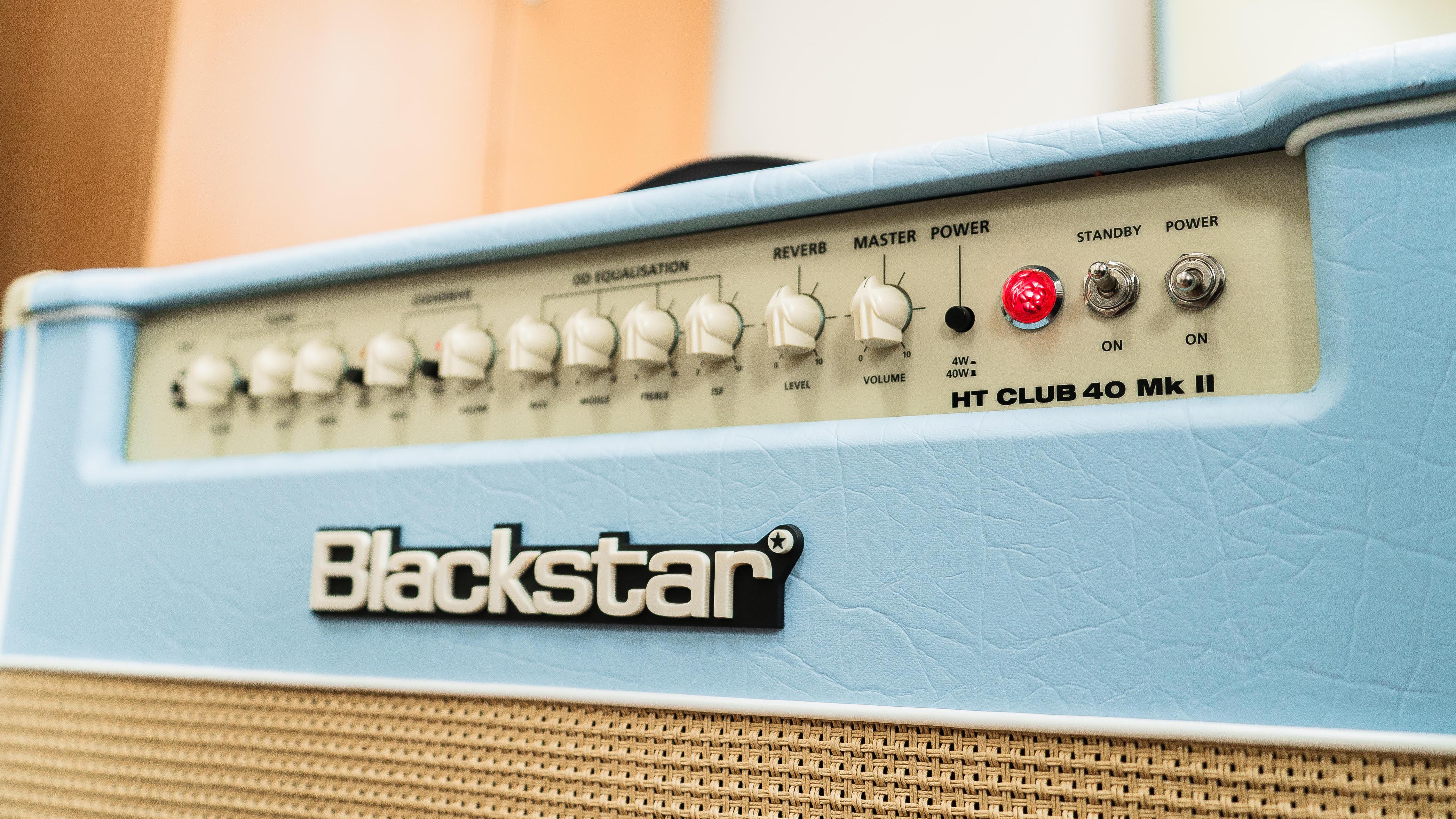
I'm pretty sure we do it in a very unique way here, as everything's very much science-based and measurement-based
Do you think there is a like further education path that someone could take if they know that they want to pursue this kind of design work with amps?
"Definitely sound engineering. Just the the language that you speak, not necessarily like normal music language, such as, 'it sounds a bit too woofy' or something. More an extended vocabulary and really understanding things like high-pass filtering what it really means. As well as the electronic side of that as well, which would be a really good thing to learn in uni. And that will just kind of fast track you to being able to jump in and understand everything that is going on."
Is it worth someone deciding if they want to be involved in the modelling side? Assuming that is more computer-based, as opposed to the electrical or engineering side?
"I think that's the that's the bit where, at least at Blackstar, we completely crossover. So a lot of the stuff that we do here isn't like, 'Let's change this resistor and see what it does'. It's more like scientifically based; what do we want the end result to be and how do we get there? There's a couple of ways we can do it in the analogue domain, and we can do it in the digital domain. So I think you can go either way."
Do you think that crossover is what makes Blackstar unique as an amp company?
"I think so. Obviously, I don't know what other amp manufacturers do but I'm pretty sure we do it in a very unique way here, as everything's very much science-based and measurement-based. As long as you've got that mentality, then you understand things and making sure that you prove everything out, it's more like a science or maths 101. Rather than, I want to be an amp designer and here's how you do it. It's more like, there's something that I need to understand so how do I understand that? Let's find out the best way to do that."
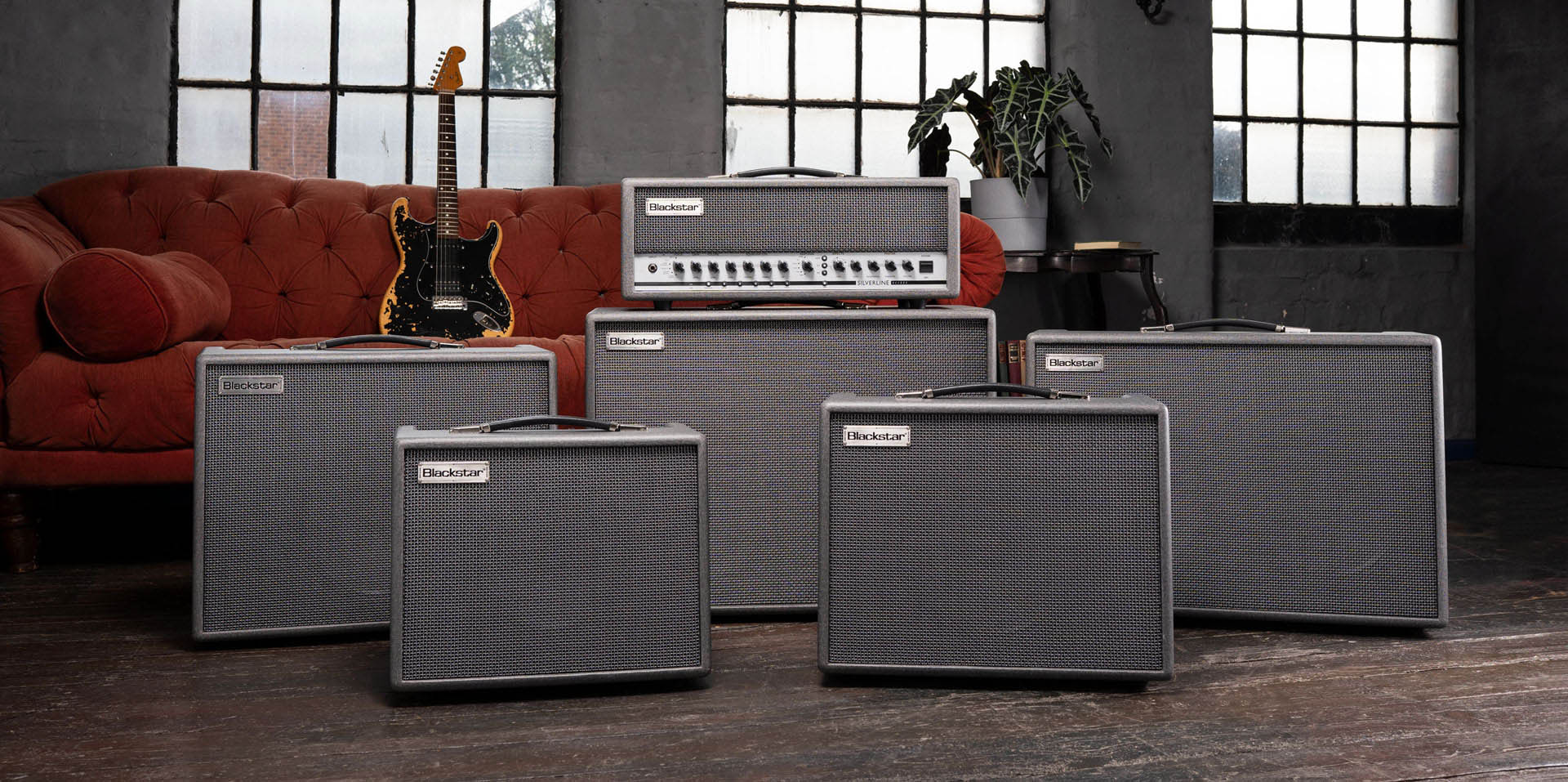
Should someone who wants to get into the industry focus on the more old school approach getting into a company, helping them any way they can and then learning on the job? Because it seems effective in giving people a really well-rounded background.
"Yes, and I think it's hard because even to find an audio electronics course. There might be some stuff out there I don't know about but learning about electronics is so wide. And then there's learning about audio electronics, which is [what we do] here, and then there's learning about amp-specific audio electronics which is a super small part of all that.
"I can pick up so much stuff here. As long as I've got the basic understanding of things like, what the filter is, what a gyrator stage is, what a what a valve does and the effect of it. All that's from working with the engineers; that's how I picked up all that kind of thing, rather than going on a course to learn that."
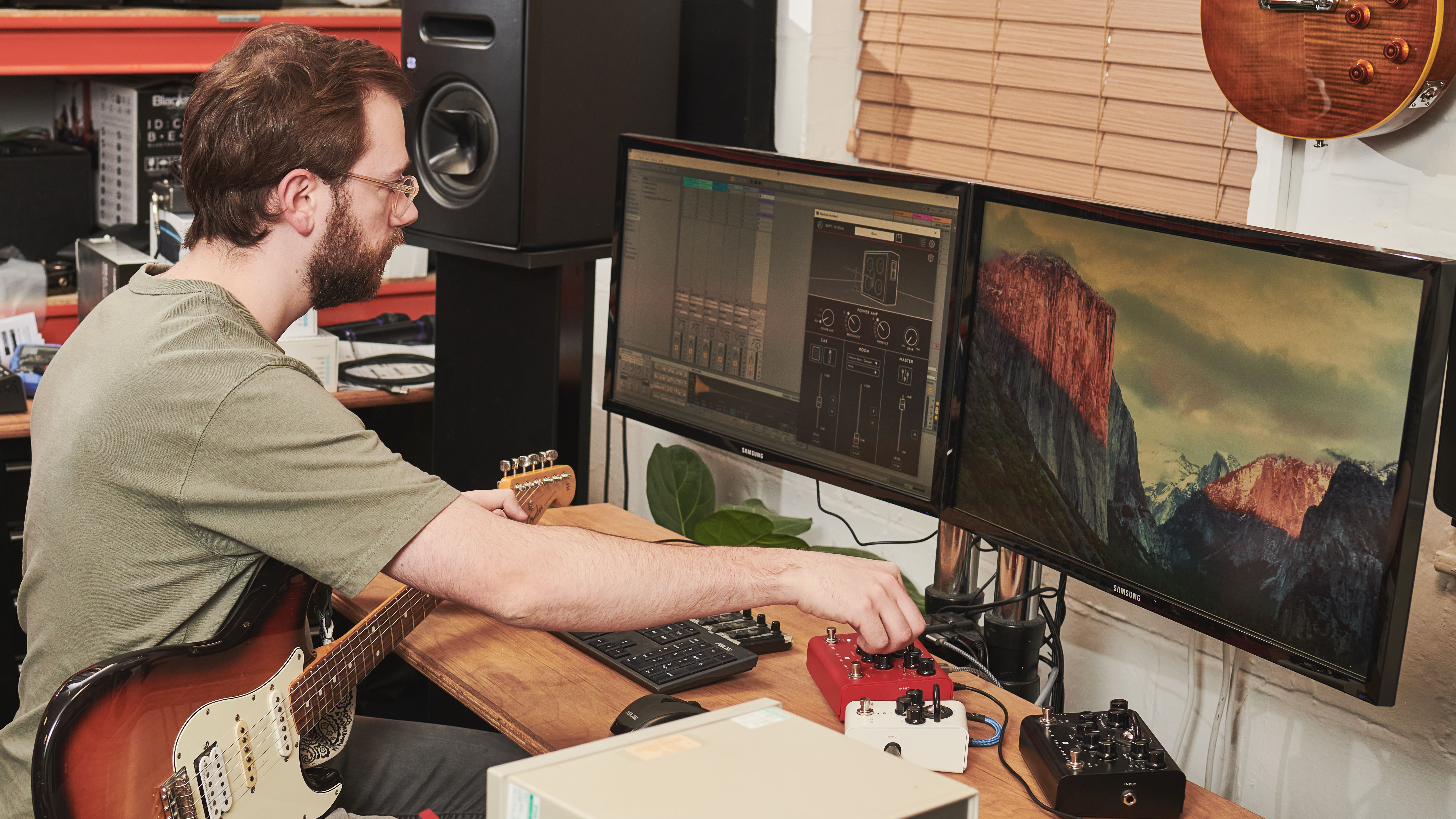
I think a lot of the misconceptions around 'valves are better' and 'digital's better' come from historic products that have kind of tainted the waters a little bit
Do you feel that the the kind of 'valve versus digital' amp debates that you might see online and elsewhere are distracting and unnecessarily polarising?
"For sure, yes, and especially now. I mean, there's so many digital products that sound at least good. And then there's a few that sound really good. I think a lot of the misconceptions around 'valves are better' and 'digital's better' come from historic products that have kind of tainted the waters a little bit with 'that's digital, that sounds really bad'.
"With every digital product that we do here we learn a hell of a lot more about how to get it closer to that analogue sound, which is ideally the end goal. And then once we've got there, what else can we do with it? How far can we push it into the way that we actually want? How can we make that pushed valve amp sound come out of a 10-watt ID Core or something?
"So I think there's a lot of misconceptions out there. And it's hard to prove that one sounds better than the other or they sound the same, if that's what the goal is, with some of the products that are out there historically."
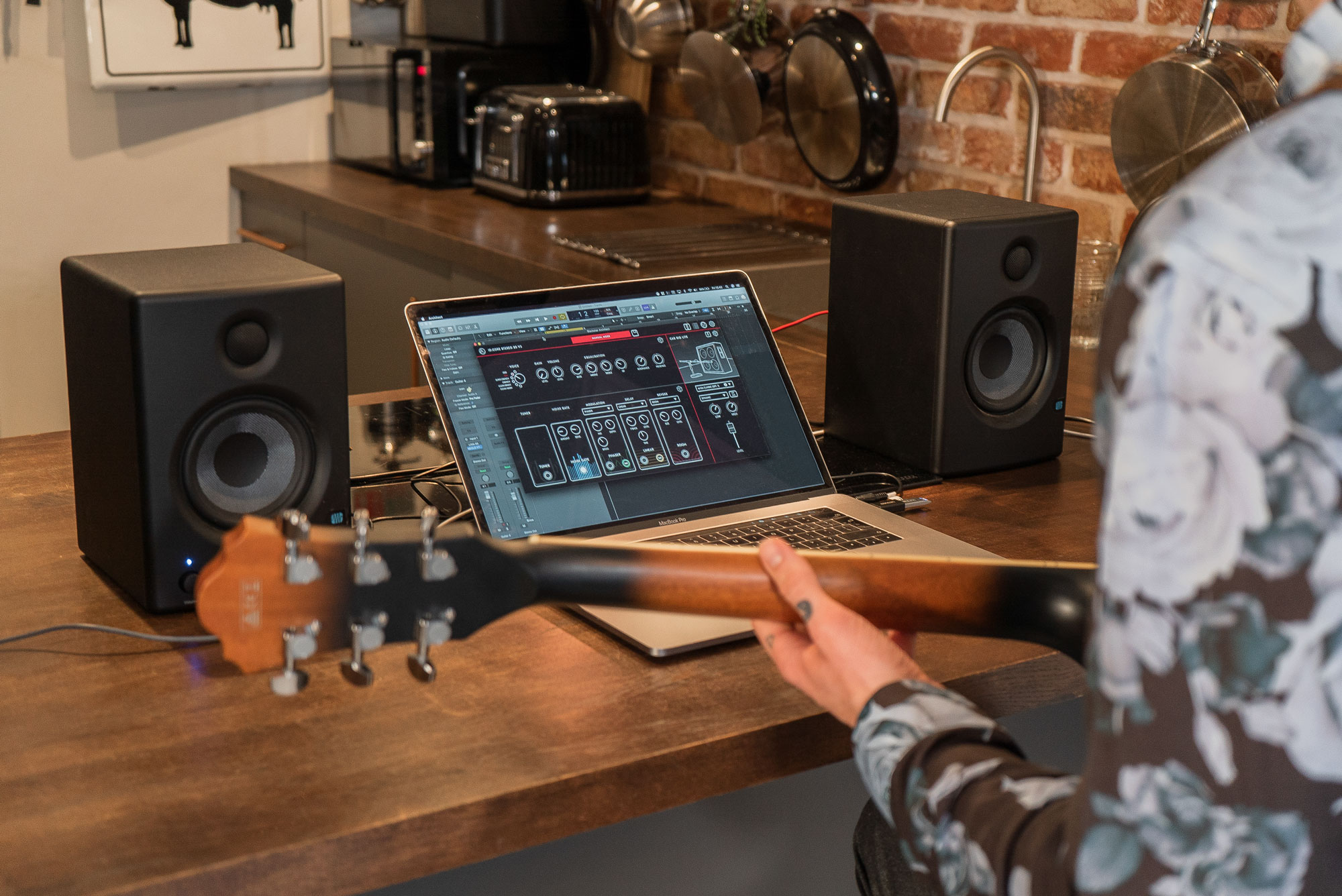
Even though our valve amps are all analogue in the signal chain, the way that that we develop stuff, it's just so much quicker with digital technology
Do you feel that digital technology can actually enhance valve technology in certain applications?
"Yes. It's more to do with the way that we do things here, but we do a lot of the linear stages of voicing in the digital domain. Because, one, it's just quicker to do that because we've got all the tools in-house to be able to get in and out of a valve amp and have proven that it doesn't change the tone at all in between stages. Then we can add filtering, and we can really dial in things in the analogue domain. Things that would have taken months and we'd be doing a lot of it blind; like adding a filter in here or adding a clip or a gain stage somewhere.
"To do that in the real world we'd have to build a large bench prototype, but to prototype in the digital domain it takes three minutes. We can find out, oh that sounds great or that sounds terrible, let's not do that. We'd be glad we didn't spend ages doing this thing that we think might change the sound rather than just testing it really quickly.
"So I think that's the main thing that we found here. Even though our valve amps are all analogue in the signal chain, the way that that we develop stuff, it's just so much quicker with digital technology."
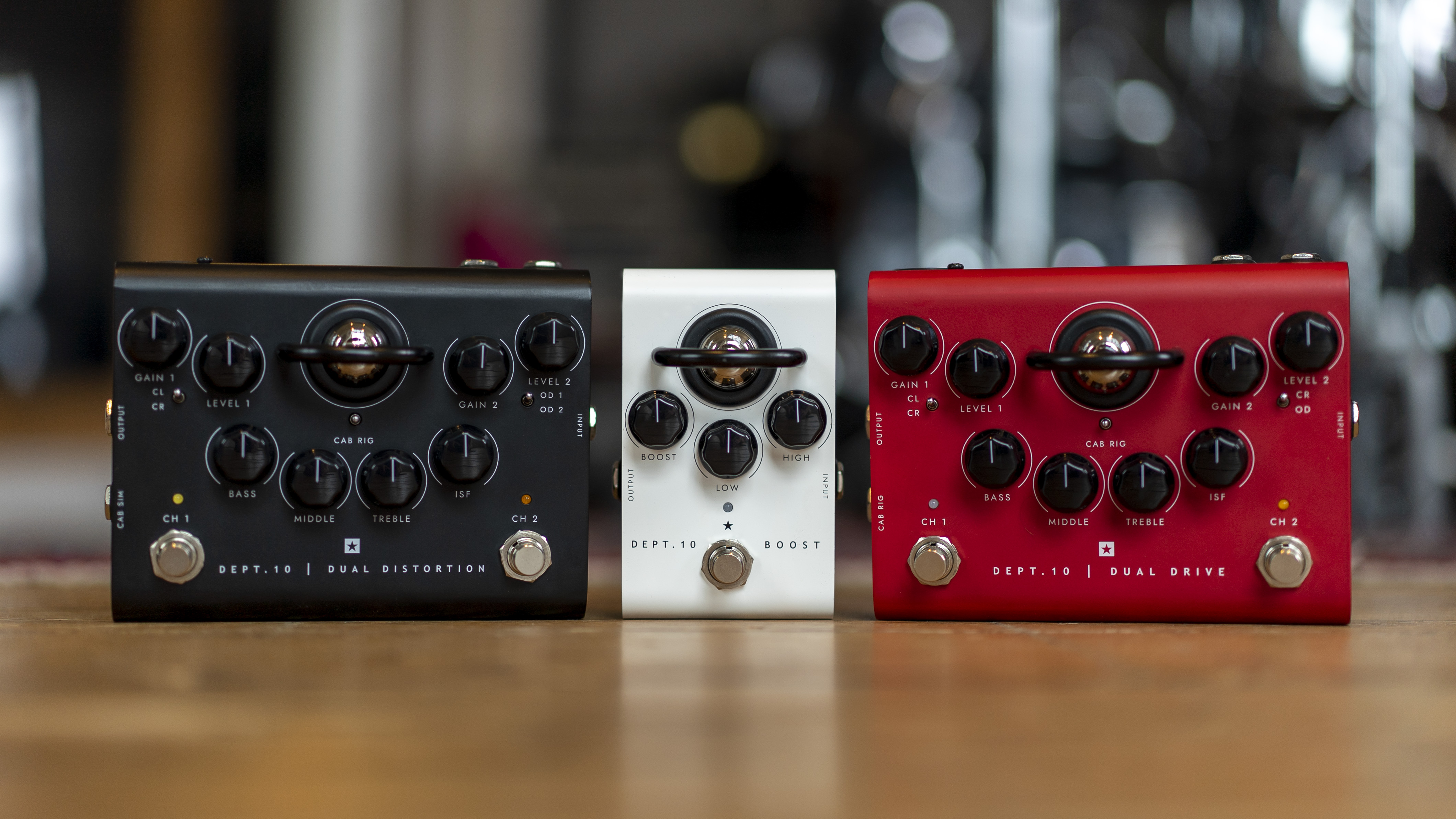
I can certainly see some people moving away from traditional amps and going to more of a pedal platform, pedalboard or amp replacement kind of product
Amps are traditionally backline gear but what have you noticed with regards to demand for pedal-based amps? Because Blackstar responded to that to some degree with the Dept 10 preamp pedals and their Cab Rig technology that you worked on.
"It's interesting, because the company launched with the HT-Dual pedals, and they were 10 years ago now or about that. And the the main differences between those and what we've got now with Dept 10 is one, they're just so much smaller because components have come on so much since we designed those. It's not [built] with large components anymore, it's all surface mounted stuff with exactly the same tonal aspects and everything like that. And the second thing being the digital platform that we've introduced into there, which we can run Cab Rig on.
"I see the demand [for pedal amps] growing, especially with things like Cab Rig. You can get all of those sounds – which would generally need an amp and an IR loader and a cab or a load box or something like that – within such a small package. And for for all intents and purposes, it does the same job and sounds wicked. I can certainly see some people moving away from traditional amps and going to more of a pedal platform, pedalboard or amp replacement kind of product."
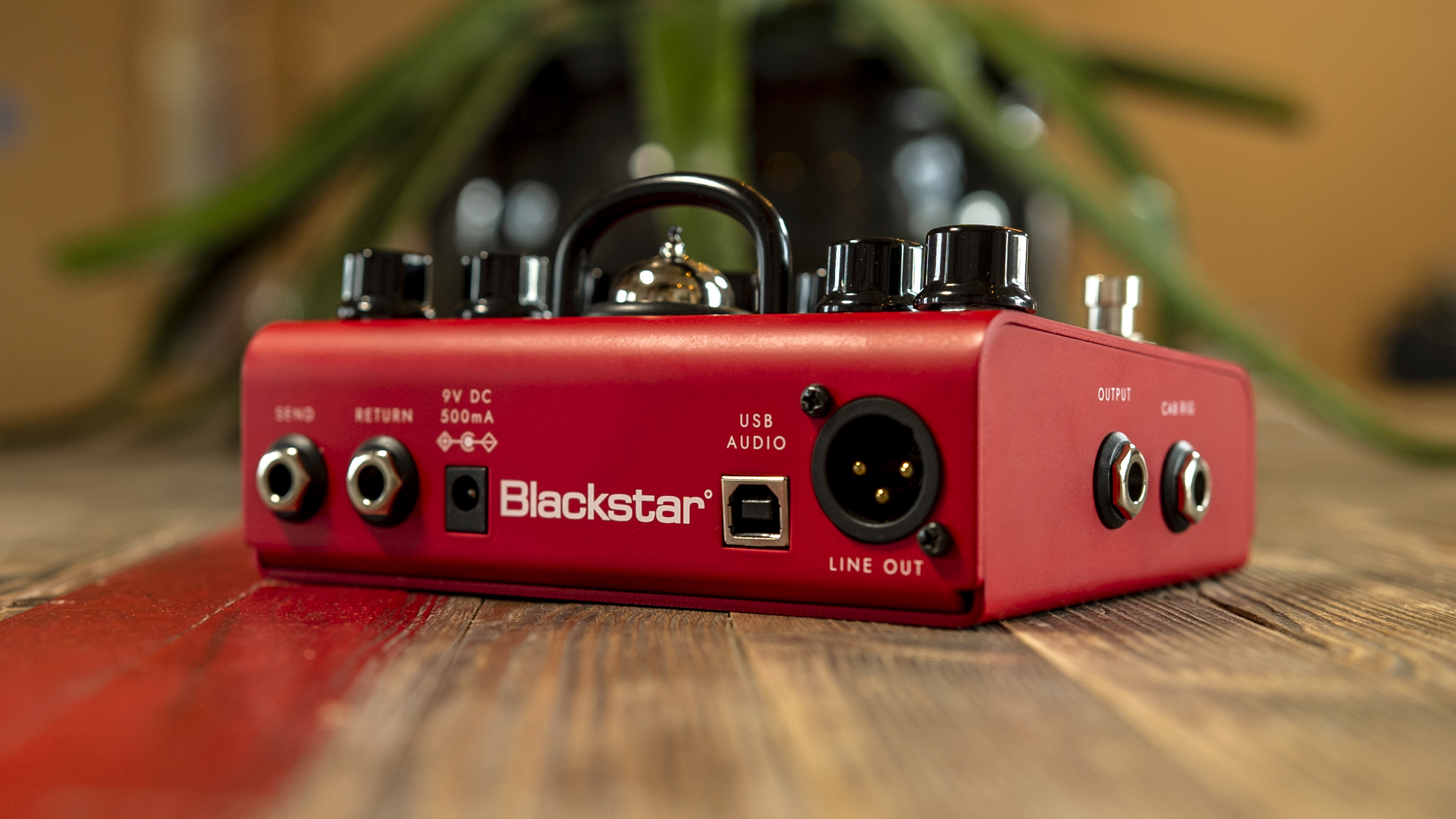
Do you think that format could actually attract people that moved to using multi effects modelling units? They're open to a non traditional amp format on the pedalboard.
"I think so. I've had amp modellers like multi-effects pedals before and I think they just go in and out of fashion quite a bit. I used one for a while and the convenience that I thought they would give me, sold it to me. And then I realised maybe it's not actually that cool or maybe I can't get the sound that I want, or the sound in my head – which is our kind of thing.
"Then when you just play a real amp through a 2x12 or 4x12 and realise, oh, that's the actual sound that I want and I'm not achieving it with this amp modelling. Like I said, there's some digital stuff out there that is getting a lot better. And our stuff is in there. So I think again, it goes back to this whole 'is analogue better than digital' kind of thing. I think we're getting so much closer to a [situation where] you can actually choose whatever you want. If you want an amp you can go for the amp thing and if you want something that fits on your pedalboard and does exactly the same job and sounds really good, then you can do that too."
The technology behind the internal voltage of the Dept 10 pedals is a significant development and there's a video of you explaining how that works (above). How involved were you with that process?
"So just for a little backstory on that, there's been a few things that Blackstar that have just needed an engineer to not be working on [another] product and just to be trying some things out – trying some techniques. And the first one that I was involved with was Super Wide Stereo. We've got a stereo amp, maybe I should try doing this thing… and it was kind of by accident that it came about and worked. It was like, oh my god, this is amazing! This is nothing like I've ever heard a guitar amp sound before. I wonder what the boss thinks? And he said, 'That's great. Let's do that'. It was the same with with Cab Rig, which was my idea for not using IRs – using something different…
The original design for the Department 10s didn't have any Cab Rig kind of stuff in it
"Again, It was thinking in the way that I was taught to think here; simplifying these problems, and scientifically going through all the different stages of that. So there's a few components of an IR; there's the frequency domain stuff, which is basically the shape of it. And then there's the time domain stuff, which is the reflections in the room kind of thing, which is all captured when you're capturing an IR. So it's very complex thing, but it's all within one WAV file. Though, if you think about the solution that that solves; it gives you a mic'd up cab sound coming out of an XLR. So how do we how do we get around that?
"It was about having the time and the support in the environment that we've got here; to try all these different things out, and to have the time to do it. And then when it works for the first time, asking, shall we actually use this in in these valve pedals?
"The original design for the Department 10s didn't have any Cab Rig kind of stuff in it. It was an analogue speaker emulation; the same that we've got on the the original pedals. And I kind of discovered this way of doing things halfway through the development of those. And then we went, this is pretty cool, I think we should put it in. So we spent probably another nine months onto the project by developing this whole digital system to put inside these pedals that could run off the super low current.
And the internal voltage of the Department 10 pedals is over 200-watts – like a full valve amp. So was that technology designed in-house or contracted out?
"We design all of our technology in-house and are constantly looking at the market for cutting-edge technologies in terms of new DSP’s and microcontrollers that we can take full advantage of.
"We are in the fortunate position of getting a sneak peak at, yet to be release tech that gives us time to full though all of the functionality and features all come from out team."
Some people are automatically dismissive of valves being using in pedals, that it's a gimmick. When you try these pedals it's very clear that is not the case.
"I think that's why I had to do that little video just because people going, 'Yeah, no, it's not not really though is it?' And just generally pedals haven't done that [internal voltage], or if they have done that then it's been like an 18-volt massive brick power supply. So to do that on the with a 9-volt input took a lot of our valve analogue engineers' time. That's way over my head. I have no idea how they do that but it's very cool!"
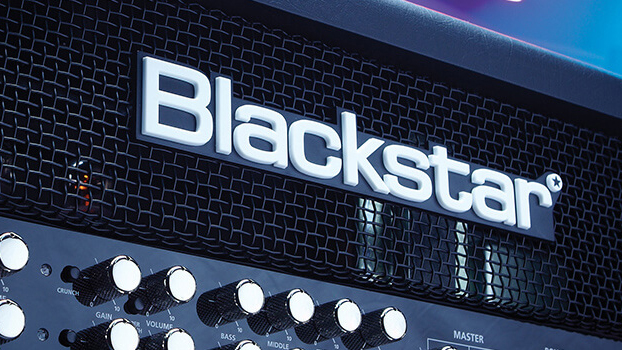
Just visiting today, I get this sense that Blackstar is an especially strong team. What do you feel is unique about the way you work as a company?
"I think, same as the time to be allowed to spend on things like Super Wide Stereo or Cab Rig all those kinds of things. I think that's just super important. And not having a massive ego so it actually opens you up to learning from all the different people in the office is really important. So all of us feel that saying 'I don't know' is absolutely fine. And taking the time out to learn about all of our different jobs and that aspect of it is the most important thing I think we've got going here.
"All of our analogue team works with the product development team, who work with the DSP team and the embedded team. We all know what's going on on one product and that just speed things along so much quicker."
What are your proudest achievements at Blackstar so far?
"Probably Super Wide Stereo was the best thing and that was [debuted at] my first trade show as well. I went to NAMM, after working on these amps and finding this cool thing. It was nine months later that it was actually in a product. And it was not forgotten about but we got used to Super Wide Stereo here and it just became another thing that we've got. And then I went to NAMM for that first time and I'm hearing people react, 'What the fuck is going on?! Where's the sound coming from?' That's probably the coolest thing."
I think the whole analogue side of things will have some advances where things are getting smaller and lighter
What do you see as the biggest opportunities for advances with amps in the future?
"I think the whole analogue side of things will have some advances where things are getting smaller and lighter. And I think with the digital side, things will just sound better and indistinguishable from analogue equivalents. So I think the next next few years, things are gonna massively develop on that side."
What developments would you like to pursue at Blackstar?
"The thing that I enjoy most here is the whiteboard sessions; getting from the kind of okay idea to a really good idea. That's the bit that's the most fun. And I think within that is all the skills that we can develop internally, knowing the limitations and the kind of boundaries of analogue design and digital design, but being aware that if you have that knowledge at the design stage of things, then the limits are then pushed for what we can do. And that's the thing that I think I'd like to advance on."
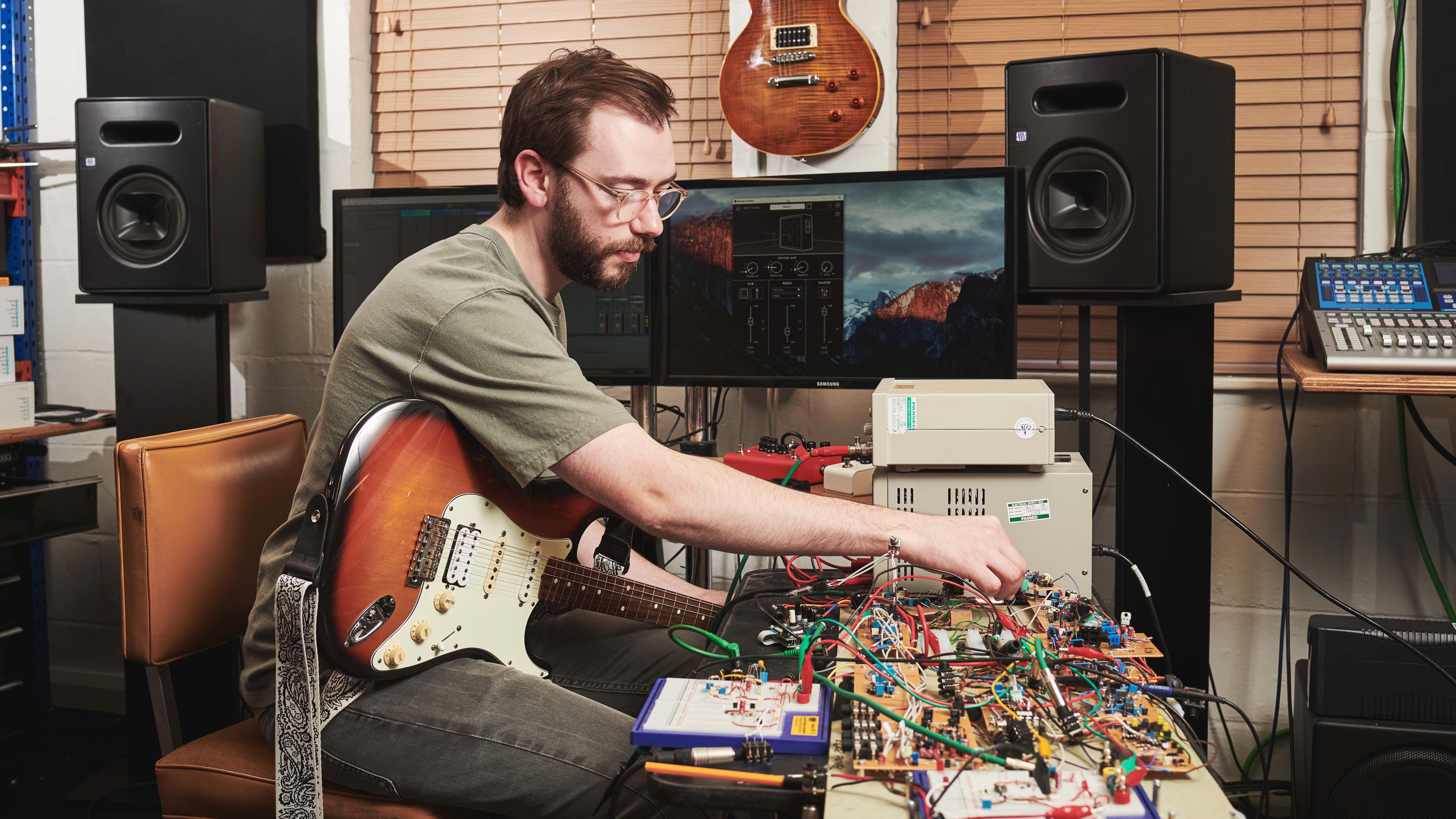
Are there specific people at Blackstar who are tasked with being the expert ears when it comes to testing new products first?
"That used to be Ian Robinson who did all of the sound stuff. And then there have been a few guys over the years who have taken that on. At the moment it's me and fellow product developer product developer Josh Brent who are mainly listening to stuff and then we make sure to sanitise it past all the guitarists in the building, which is 40-odd people.
"And then all of our distributors are the next stage, along with close artist friends, to make sure that we're actually going on the right track. I think that's one of the hardest bits; to listen to something, like when you're mixing it an album, listen to it and actually know that you're going in the right direction. It can be a pretty hard thing to do."
More and more players are making buying decisions based on demos they hear online, do you think that can be an especially risky area for accurately assessing amplifiers?
"I think so. I think there are some absolutely brilliant people that do YouTube A/B [comparisons] and gear demos. And out of even those brilliant people, if you just mic up the guitar amp wrong on that one day then it's not gonna sound great at all.
"I know I've heard gear in real life and it's been mind-blowing and amazing. And then you're hear it on YouTube and you're like, what is that? I will not buy it. So yes, I think it's the responsibility of the YouTuber to maybe up their game on the audio side a little bit. But it's same with all gear, it's not just amps."
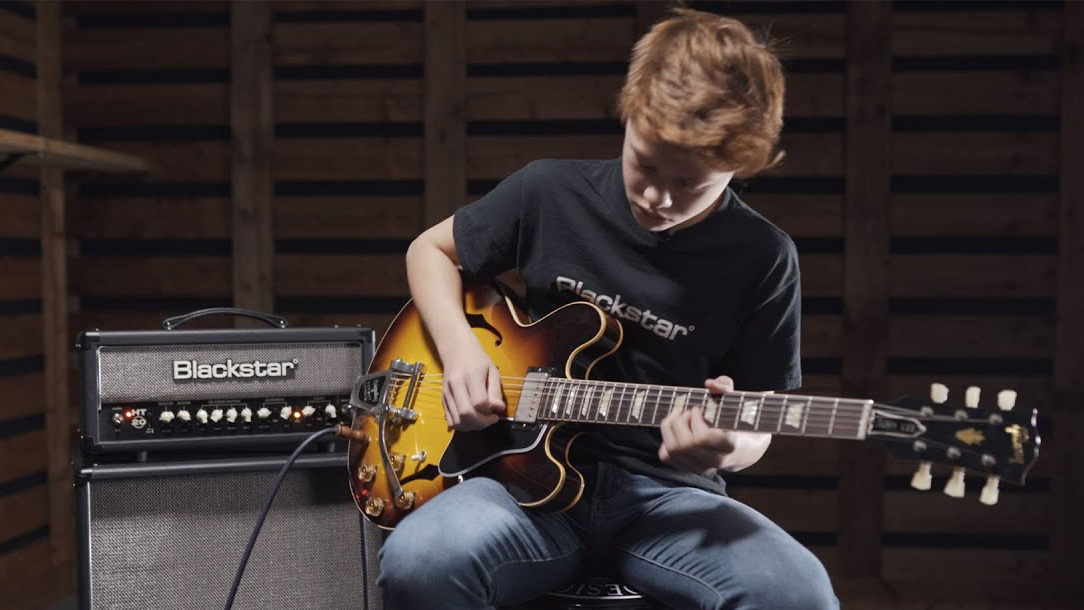
The listening part is crucial; critical listening is a massive thing
What practical skills can you advise for budding amp developers to work on?
"If you've got the basic understanding of audio, and you can play guitar, then that's the most important thing to start. I think the playing guitar thing is really interesting, because generally we don't need to sit around playing songs all day. We do the kind of technical guitar playing; one note again and again and again until it sounds good. And I think that's the big learning curve that we've got here; yes, you can play the Arctic Monkeys but can you chug 1000 times and listen to the subtle differences? The listening part is crucial; critical listening is a massive thing.
"So work on critical listening skills, learn as much as you can about all audio – not just amp audio. And listen to really clever people who know what they're talking about. That's the main thing; surround yourself with people who are inspirational if you can."
For more information visit Blackstar Amplification

Rob is the Reviews Editor for GuitarWorld.com and MusicRadar guitars, so spends most of his waking hours (and beyond) thinking about and trying the latest gear while making sure our reviews team is giving you thorough and honest tests of it. He's worked for guitar mags and sites as a writer and editor for nearly 20 years but still winces at the thought of restringing anything with a Floyd Rose.